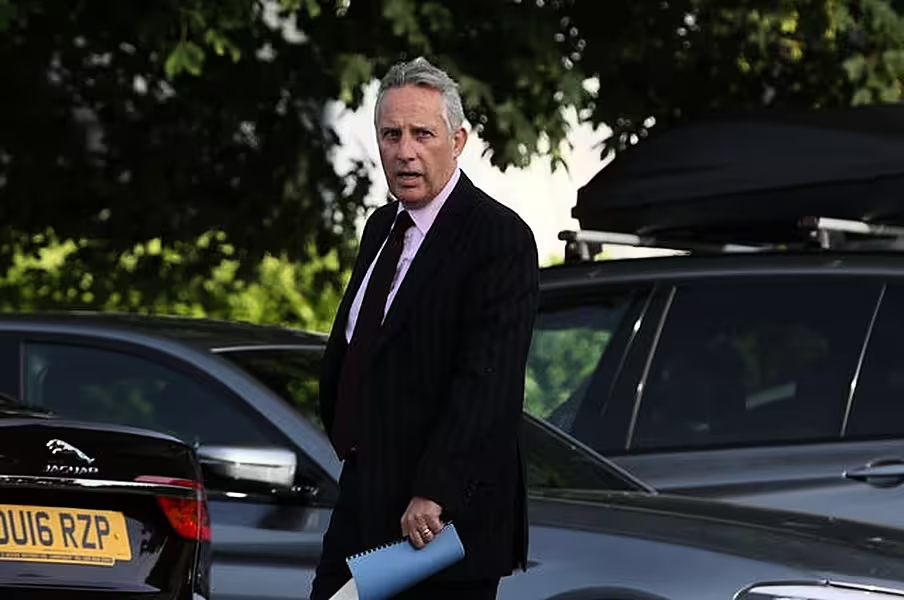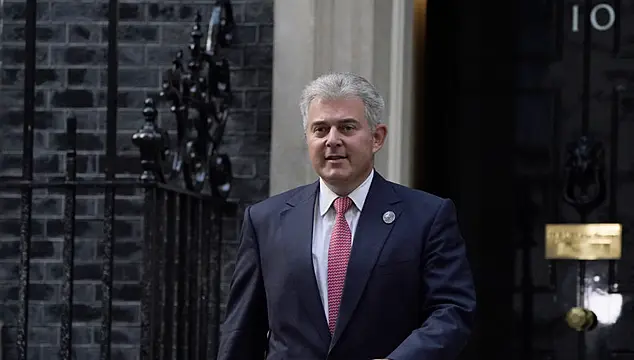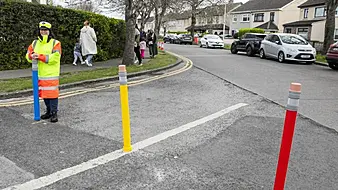The Northern Ireland Secretary has insisted the UK government’s proposed ban on Troubles prosecutions will comply with international human rights laws.
Answering MPs’ questions on the controversial plan, Brandon Lewis rejected claims the statute of limitations would put a “coach and horses” through the European Convention on Human Rights (ECHR).
In July, the UK government published a command paper outlining its intention to prohibit future prosecutions of military veterans and ex-paramilitaries for Troubles incidents predating April 1998.
Contending the criminal justice route was not delivering for victims, it said it wanted to move to a new truth recovery model to help bereaved families gain information about the deaths of their loved ones.

The government has not yet tabled the draft legislation before the UK parliament.
On Wednesday, Mr Lewis told the Northern Ireland Affairs Committee that he hoped the Bill would be tabled this autumn and said it was “feasible” the legislation could be passed before summer recess next year.
Several members of the committee challenged Mr Lewis on the plan and argued that access to criminal justice was a key plank of the ECHR.
DUP MP Ian Paisley was among committee members who raised concerns during the two-hour question and answer session.
“Do you not recognise that this is potentially putting a coach and horses through the European Convention which you’re signed up to?” he asked Mr Lewis.
Alliance MP Stephen Farry said many legal experts felt the government’s plan would become “unstuck” in regard to compliance with Article Two of the ECHR.
“My understanding and the understanding I had from numerous legal experts in Northern Ireland, including prosecutors, is that for an investigation of any nature to be compliant with Article Two the very least it has to have is the theoretical possibility of a prosecution being taken,” he said.
“And if it doesn’t have the prospect of a prosecution being taken, then it cannot be an Article Two compliant investigation.”
Mr Lewis insisted the proposals would comply with the ECHR.
He said a ban on prosecutions did not mean the UK government was “closing the book” on unsolved cases.
He said those cases would be rigorously investigated in line with ECHR requirements as part of the information retrieval process, albeit without the prospect of a resultant prosecution.
“We’ve got to ensure that what we do with the information recovery body and how it works is Article Two compliant, that’s an onus on us,” he said.
“Obviously we will be challenged around that, so it’s absolutely paramount for us to ensure that it is.”
Mr Lewis added: “I would hope that when we eventually come forward with final proposals once we’ve made final decisions around these things, that people will see that what we are looking to do is compliant, will be compliant, because it is taking forward investigations in a proper way.”

SDLP member Claire Hanna was also critical of the plan.
On the proposed information recovery model, she said it was important that any new independent body had powers to compel disclosure of documents and access classified security information.
“If this is really about truth recovery, and not about stopping the embarrassment of people who were engaged in a very, very dirty war, what possible reason would there be not to give those powers?” she asked.
Mr Lewis declined to confirm whether the government would give the body those powers.
“I avoid hypotheticals – I’m not saying that we won’t, I’m not saying that we definitely will,” he replied.
On a number of occasions, Mr Lewis stressed that a statute of limitations was different from an amnesty, though he acknowledged that many had chosen to describe the plan as such.
Boris Johnson has claimed the plan will allow Northern Ireland to “draw a line under the Troubles”.
The proposals also envisage an end to all legacy inquests and civil actions related to the conflict.
The plan has been heavily criticised by all the main political parties in Northern Ireland, as well as the Irish Government and a range of victims and survivors groups.
Mr Lewis told the committee that there had been a lot of “noise” generated by the UK government’s announcement in the summer.
He acknowledged that there was opposition to the statute of limitations, but he insisted there were others who were supportive.
The cabinet minister said one of the reasons the draft legislation had not yet been finalised was because the government wanted to keep receiving feedback from victims and other interested parties on the plan.







